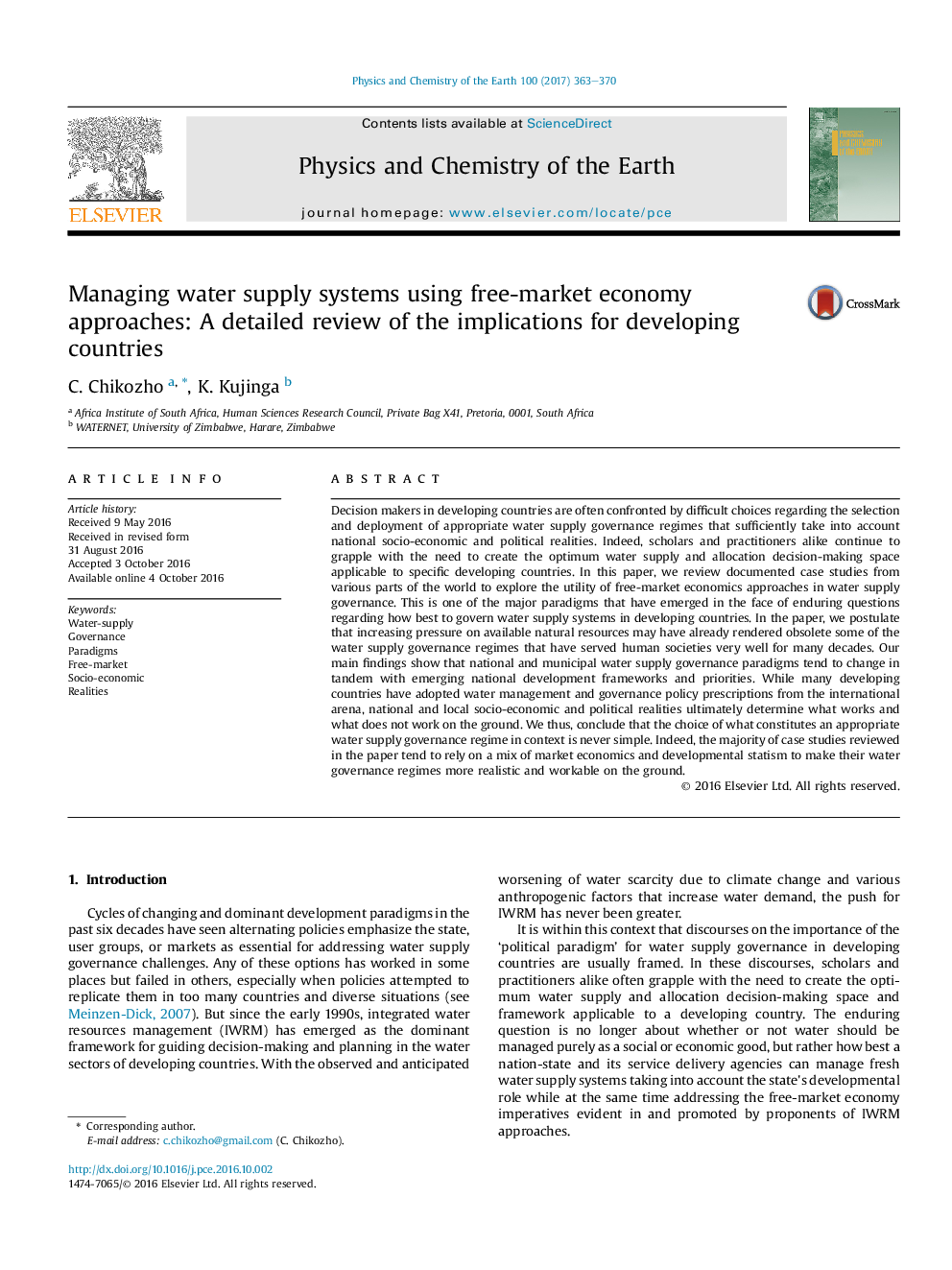| کد مقاله | کد نشریه | سال انتشار | مقاله انگلیسی | نسخه تمام متن |
|---|---|---|---|---|
| 5784578 | 1639338 | 2017 | 8 صفحه PDF | دانلود رایگان |
- The choice of the appropriate water supply governance regime is difficult.
- The utility of free-market economy approaches in water supply is questionable.
- Free-market economy approaches often lead to inequitable access to water.
- A mix of water access regimes seems more appropriate in most developing countries.
Decision makers in developing countries are often confronted by difficult choices regarding the selection and deployment of appropriate water supply governance regimes that sufficiently take into account national socio-economic and political realities. Indeed, scholars and practitioners alike continue to grapple with the need to create the optimum water supply and allocation decision-making space applicable to specific developing countries. In this paper, we review documented case studies from various parts of the world to explore the utility of free-market economics approaches in water supply governance. This is one of the major paradigms that have emerged in the face of enduring questions regarding how best to govern water supply systems in developing countries. In the paper, we postulate that increasing pressure on available natural resources may have already rendered obsolete some of the water supply governance regimes that have served human societies very well for many decades. Our main findings show that national and municipal water supply governance paradigms tend to change in tandem with emerging national development frameworks and priorities. While many developing countries have adopted water management and governance policy prescriptions from the international arena, national and local socio-economic and political realities ultimately determine what works and what does not work on the ground. We thus, conclude that the choice of what constitutes an appropriate water supply governance regime in context is never simple. Indeed, the majority of case studies reviewed in the paper tend to rely on a mix of market economics and developmental statism to make their water governance regimes more realistic and workable on the ground.
Journal: Physics and Chemistry of the Earth, Parts A/B/C - Volume 100, August 2017, Pages 363-370
